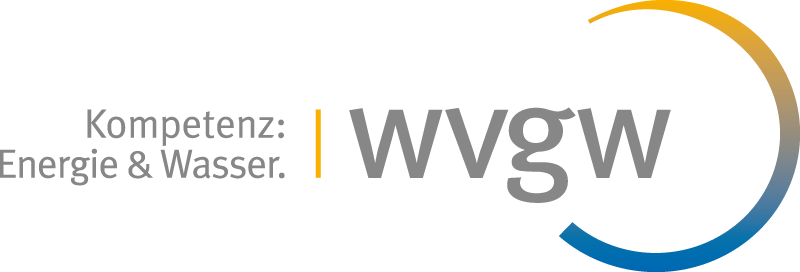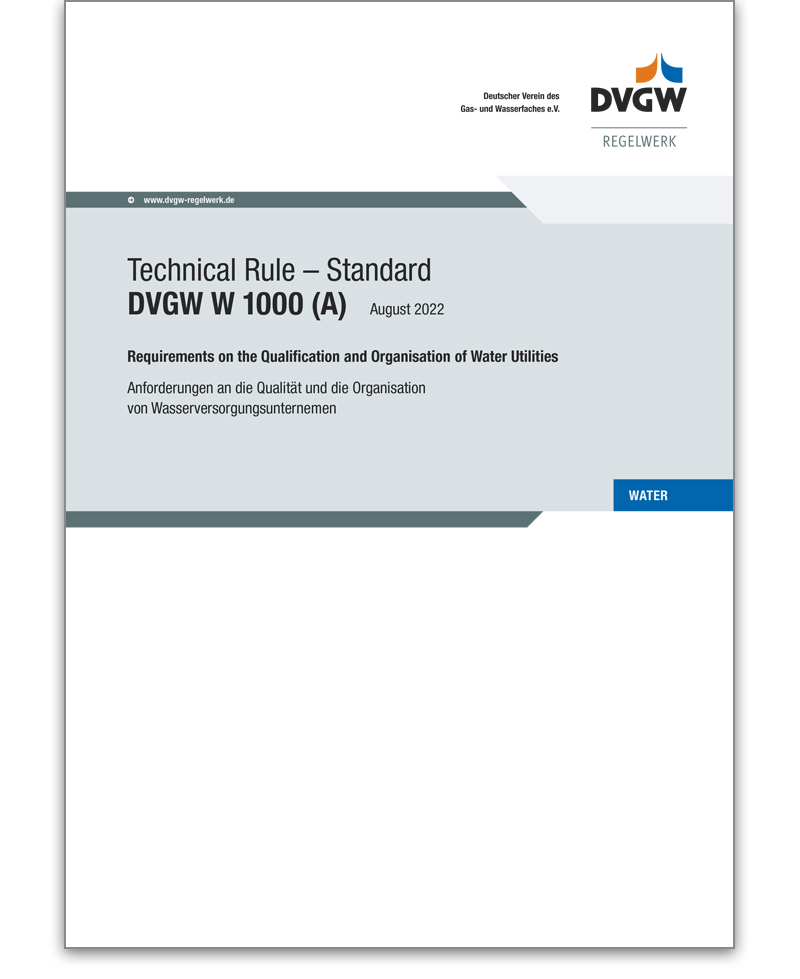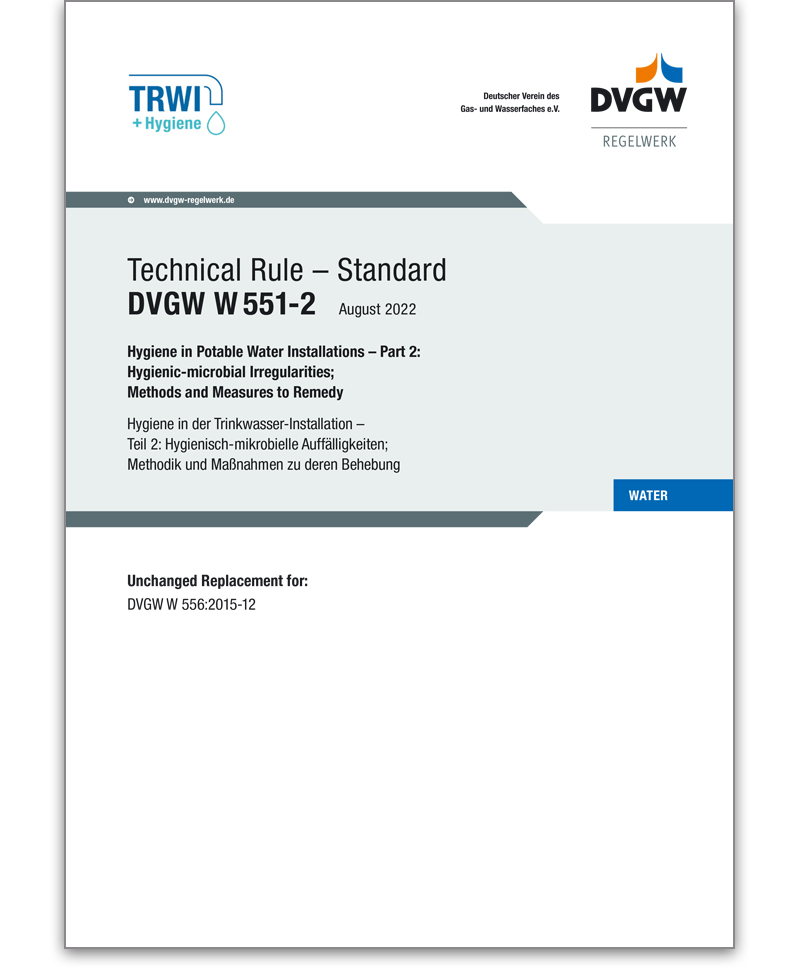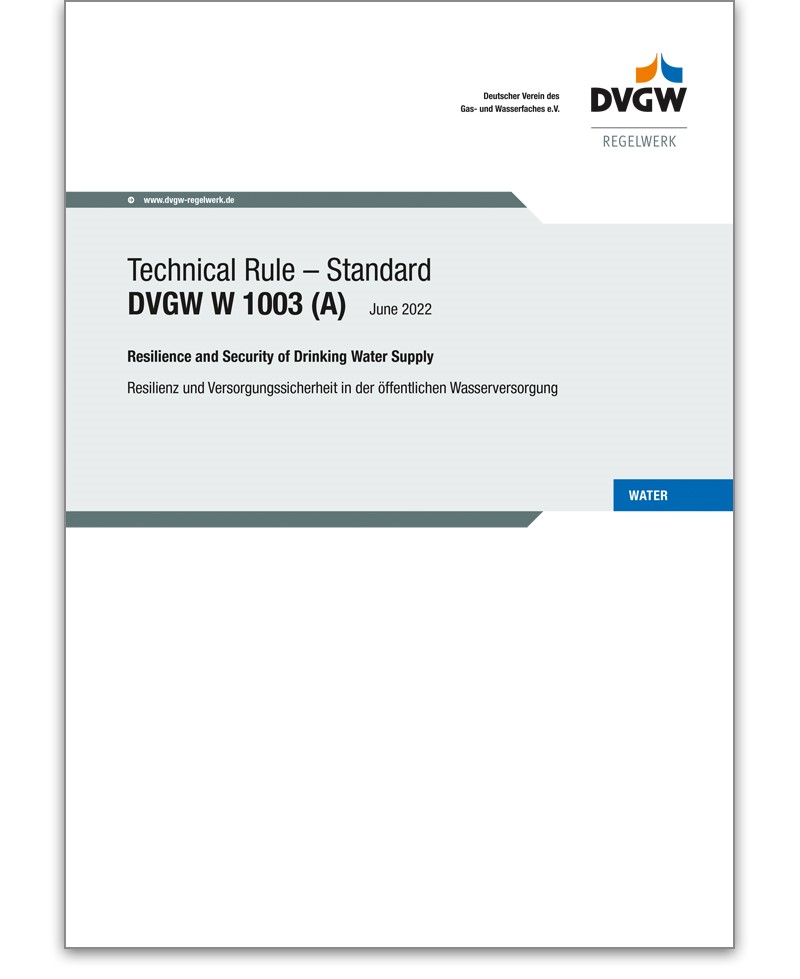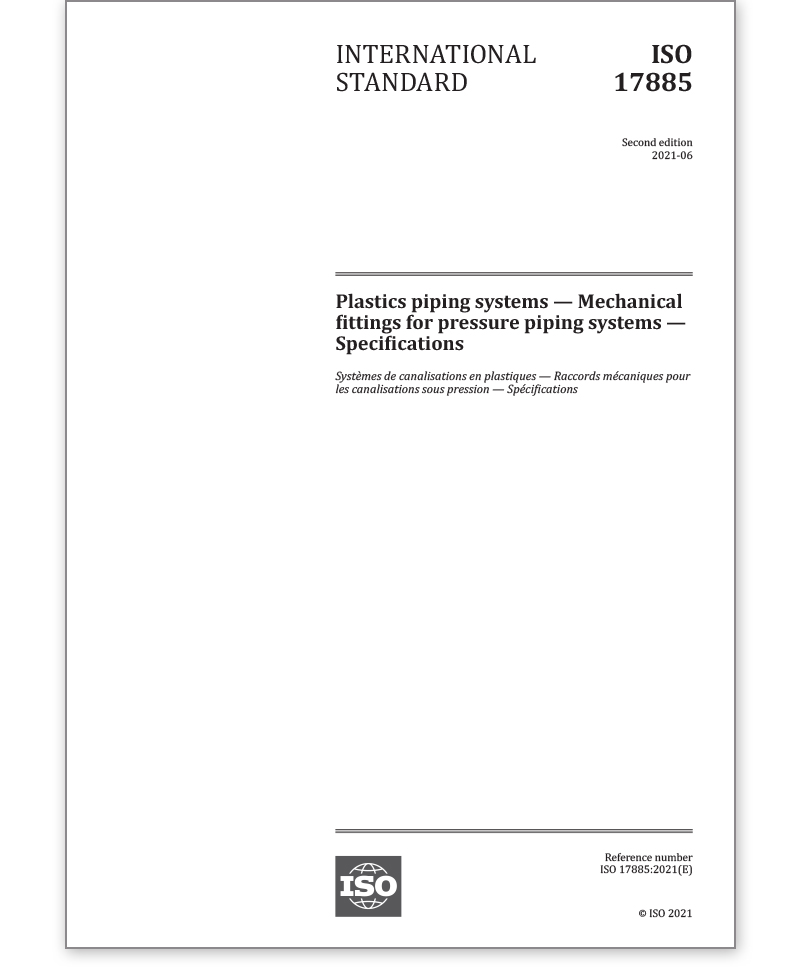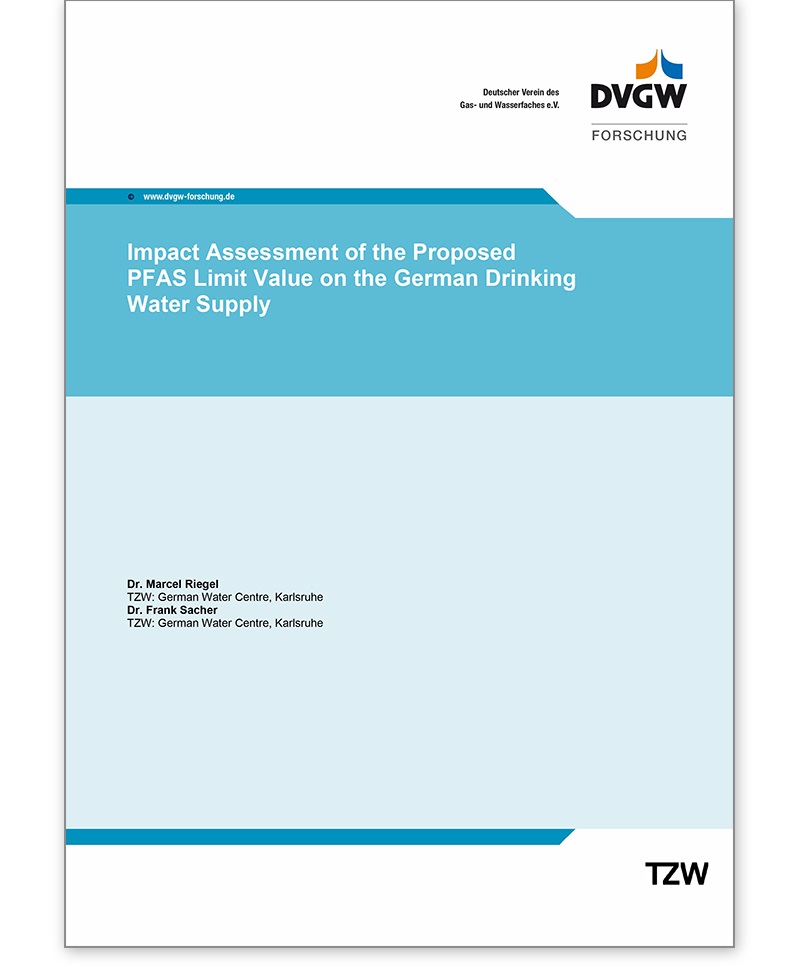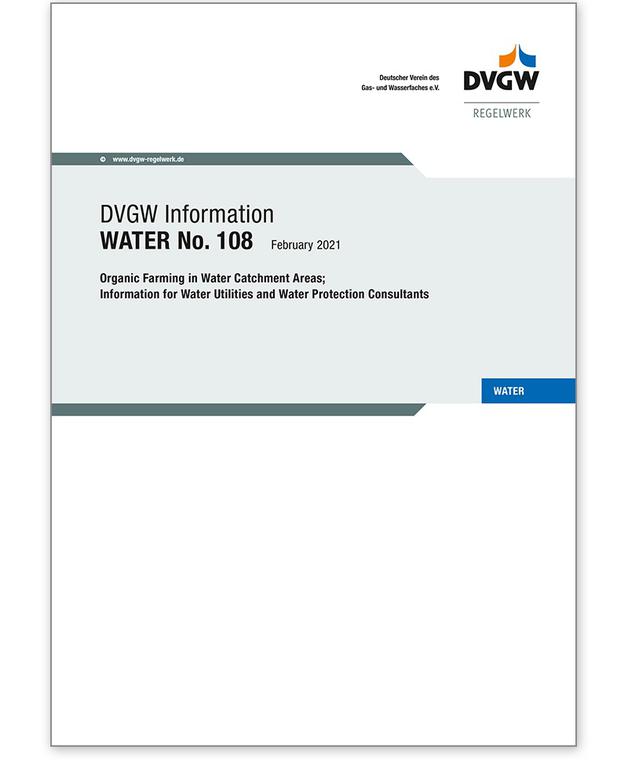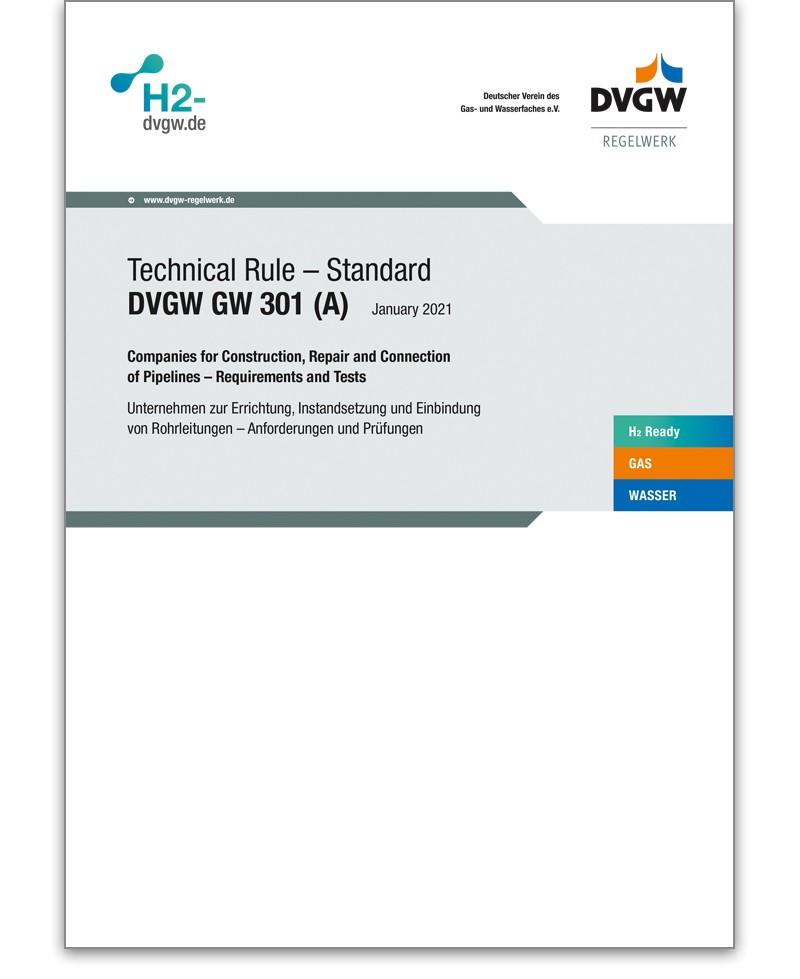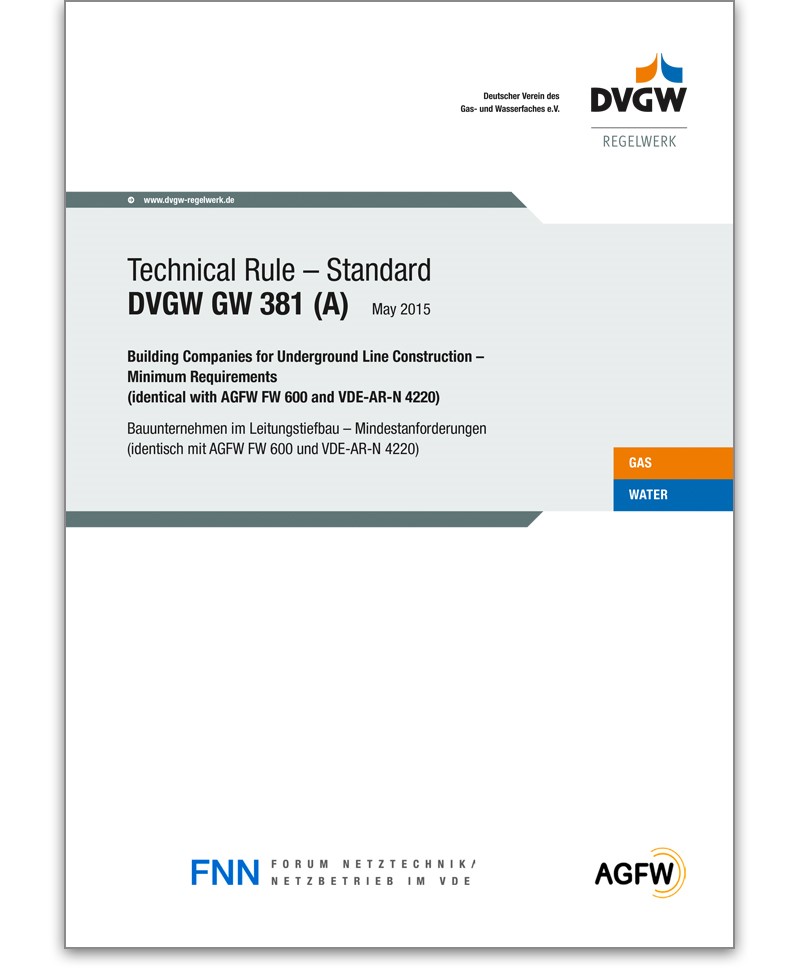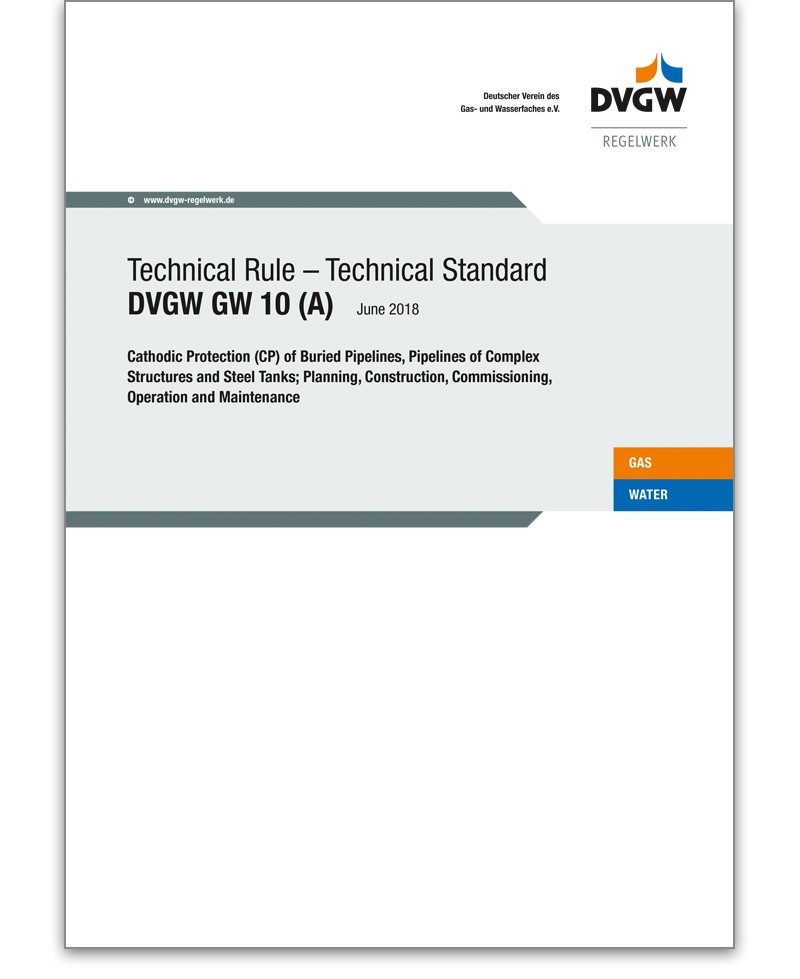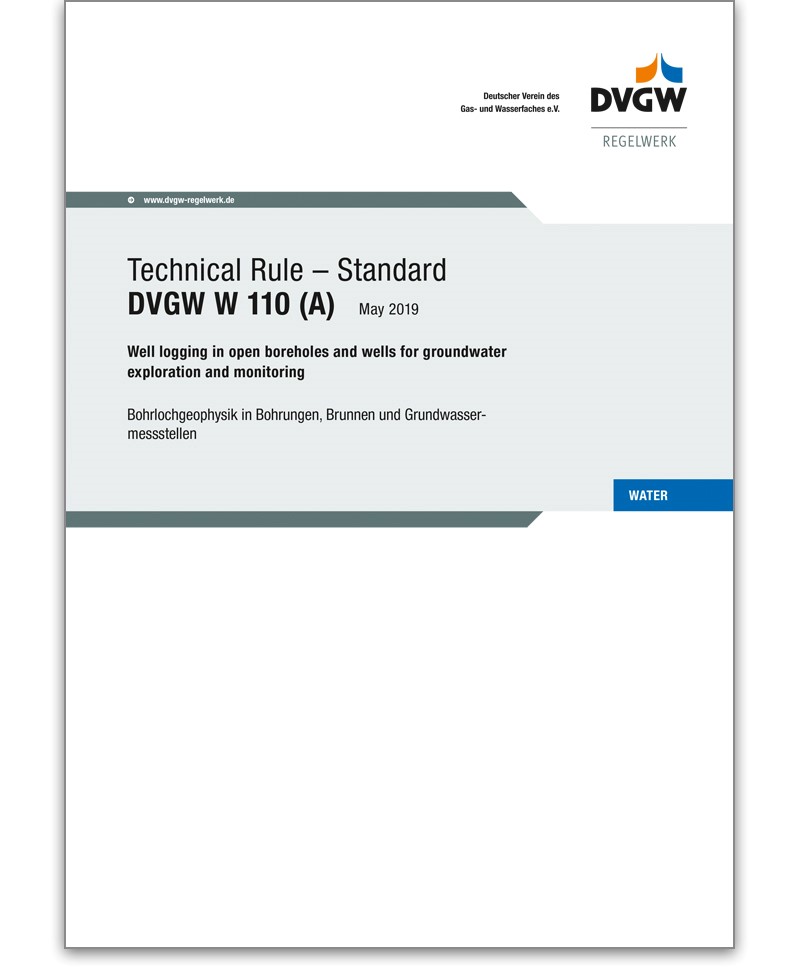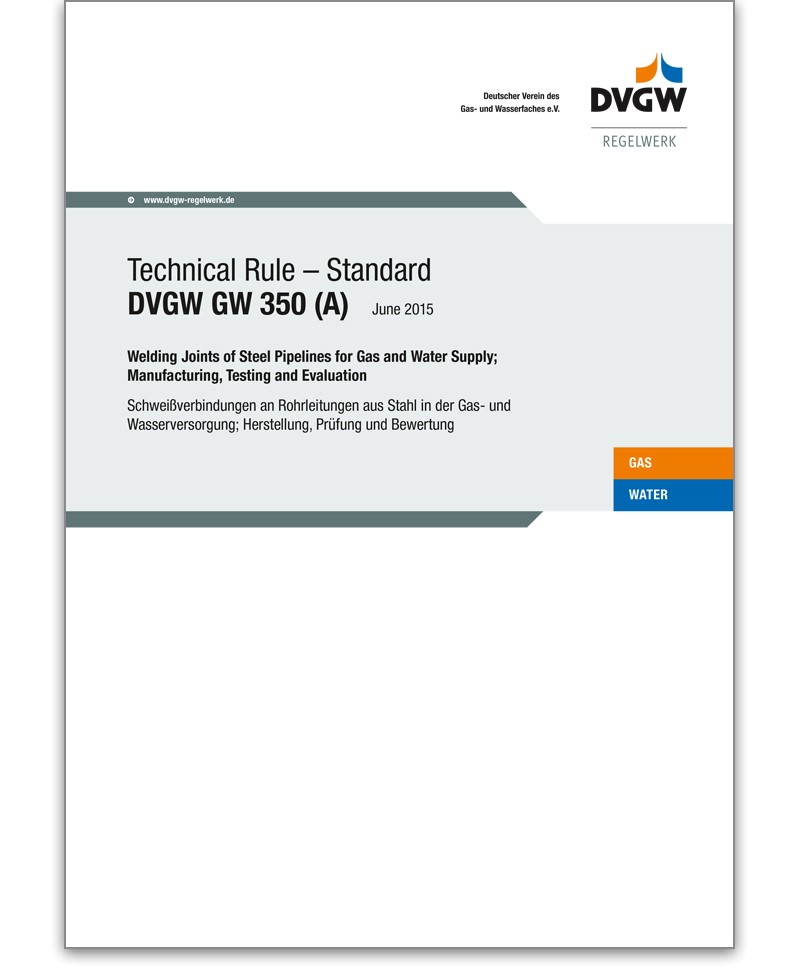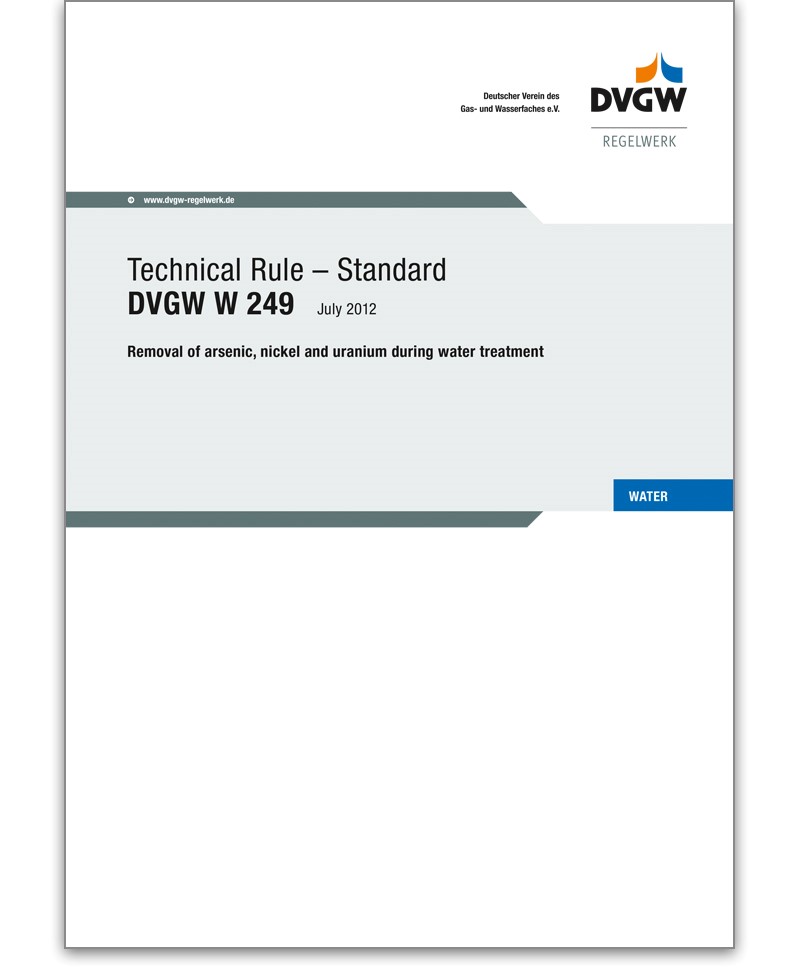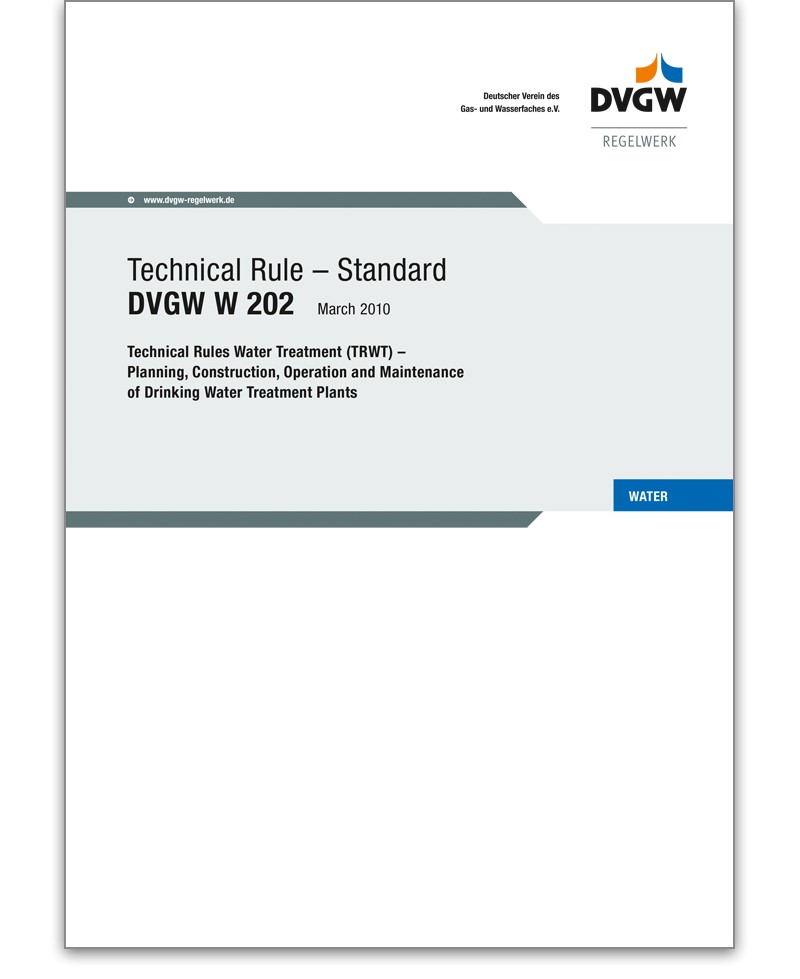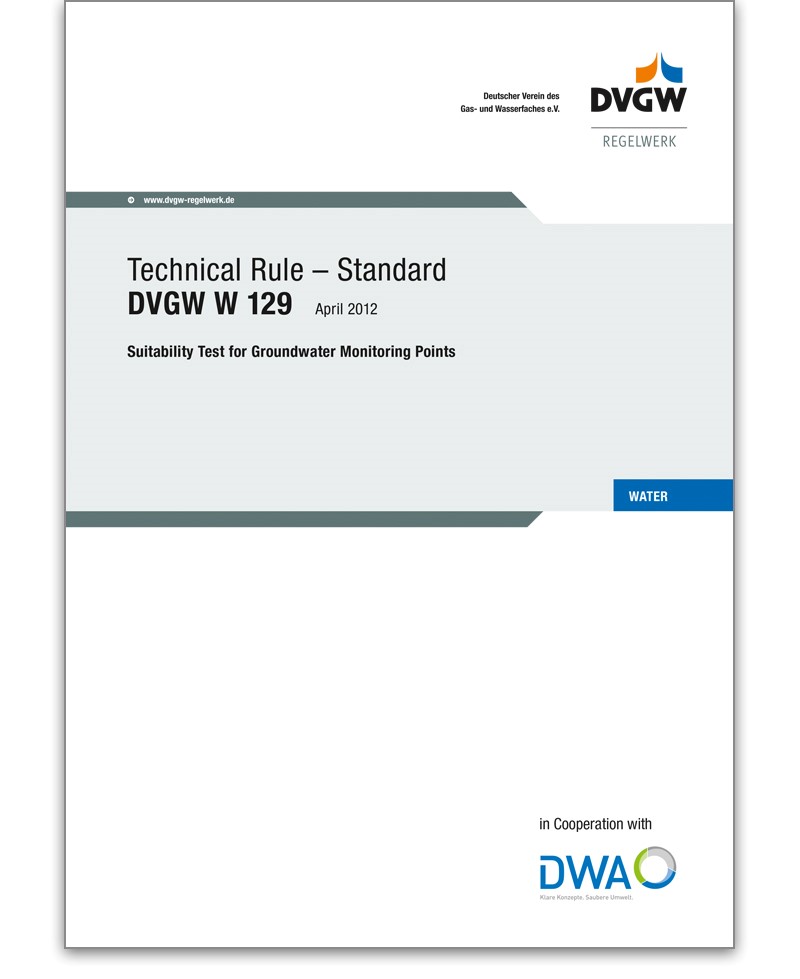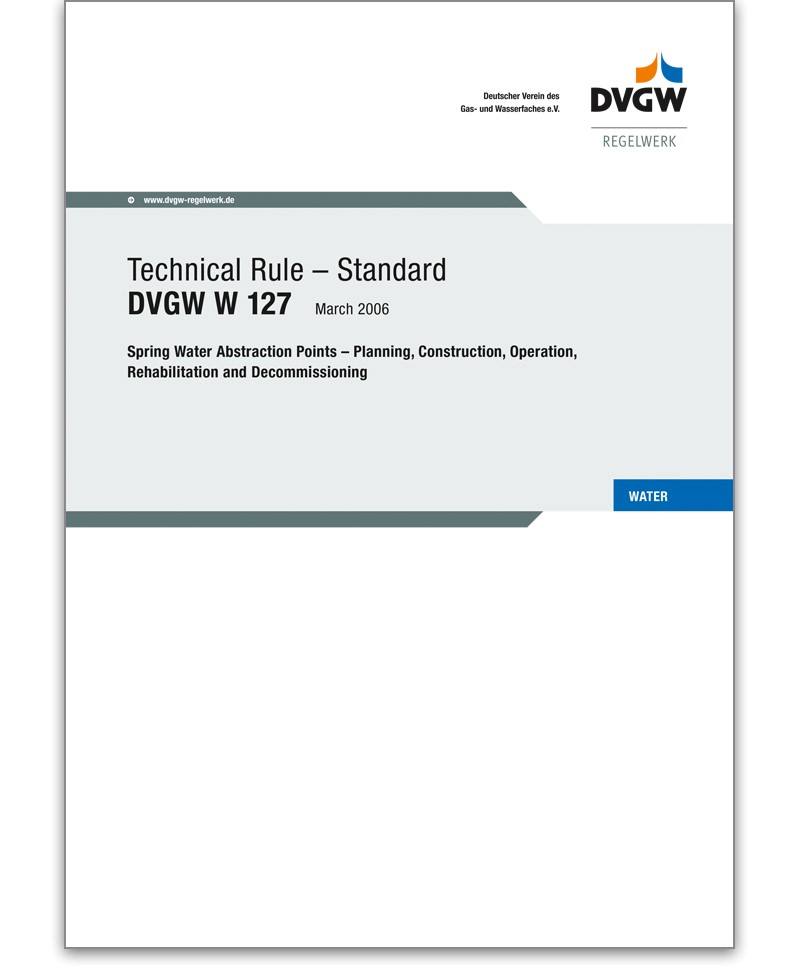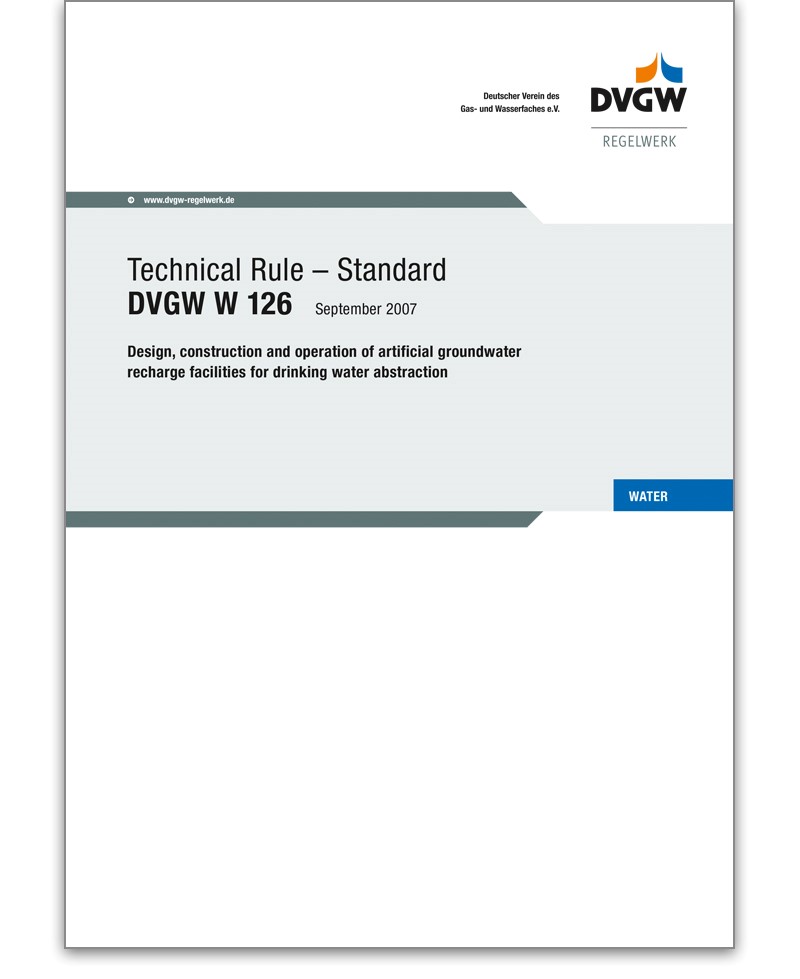
DVGW Set of Rules Water
They ensure that water is safe to use at all times. The DVGW Set of Rules is compulsory reading for water supply companies, tradesmen, plumbers, engineers, health authorities and anyone who deals professionally with the subject of drinking water.
W 1000 Technical Rule - Standard 08/2022
62,03 €*
W 1000
describes the requirements on water utilities in the area of the public water
supply as regards their structural and process organisation.
This
standard W 1000 applies to water utilities that are active in the field of the
public water supply. It stipulates the requirements on the qualification of the
work force and the organisation of these companies as basis for a safe, dependable,
environmentally compatible and economically efficient public water supply as
defined by DIN 2000 and the statutory regulations.
The
requirements of this standard W 1000 apply equally to contracting parties
commissioned by the water utility.
W 551-2 Technical Rule - Standard 08/2022 -pdf-file-
79,28 €*
This standard W 551-2 applies to the operation and
maintenance of drinking water installations in buildings. It stip-ulates the
requirements on the management of technical and microbiological irregularities
that may ad-versely affect hygiene in drinking water installations.
W 1003 Technical Rule- Standard 06/2022 -PDF-Datei-
79,28 €*
This Standard W 1003 relates to the piped supply of public
water under normal operating conditions. Covering the different technical
aspects and value-added steps, it provides an integral overview of how to
describe, analyse and assess the resilience and security of supply in water
supply areas.
ISO 17885 06/2021 -pdf-file-
183,51 €*
This document ISO 17885 specifies the requirements for
mechanical fittings for joining plastic piping systems for the supply of
gaseous fuels, the supply of water for human consumption and other purposes, as
well as for industrial application.
It provides a unified set of test methods to check the
performance of the fittings, depending on their intended use.
It is the responsibility of the purchaser or specifier to
select the appropriate fitting, taking into account their particular
requirements and any relevant national guidance or regulations and installation
practices or codes.
GW 381 Technical Rule - Standard 05/2015
39,92 €*
For the purposes of this Standard GW 381, the term minimum requirements implies that further requirements can ensue from technical rules and legal provisions and/or that the ordering party may stipulate further requirements, in particular in the presence of special features or needs for protection or other constraints. The optional criteria shall, without claiming to be exhaustive, be considered guidance for the ordering party who shall decide on the need for further requirements. If a company consists of several units, this technical rule applies to the units in charge of underground construction and, without exception, to independent subsidiaries as well. A subsidiary shall be assumed to be independent if, in effect, it actually controls most operations and/or if the head office of the company is unable to provide the supervision of the staff and the construction sites as required.
W 110 Technical Rule - Standard 05/2019
79,28 €*
This Standard W 110 intends to offer guidance for the beneficial use of geophysical logging measurements. It aims to help the user find the optimal combination of logging techniques for a defined task as early as in the concept phase of borehole surveys in vertical and, where due to design constraints, partially also in horizontal filter wells as well as in groundwater monitoring points. It is by no means a tool for evaluatingand interpreting geophysical measurements, a field that in the course of the last decade has evolved into an almost autonomous scientific discipline and, therefore, should be reserved for the relevant experts toengage in.This Standard applies to the design and execution of geophysical measurements in boreholes for groundwater exploration and abstraction in unconsolidated and consolidated rock, including well and groundwater monitoring point surveys. Drillings and probes used in near‑surface geothermal systems have a Special position in this context.
GW 350 Technical Rule - Technical 06/2015
79,28 €*
This Technical Rule GW 350 in conjunction with DIN EN 12732 applies to the manufacture, testing and Evaluation of welds on steel pipelines and installations which serve to supply the general public with gas within the meaning of the Energy Industry Law (EnWG) or which are part of the associated energy installations on factory premises and in the area of operational gas use and which are to be operated with the gases of the 2nd gas family according to DVGW Standard G 260 or DVGW Standard G 262. It also applies to pipes in operation.For steel pipelines and installations for gases which do not comply with the provisions of the above DVGW standards, this technical rule may be applied mutatis mutandis taking into account the specific properties of the gases and any other existing provisions.
